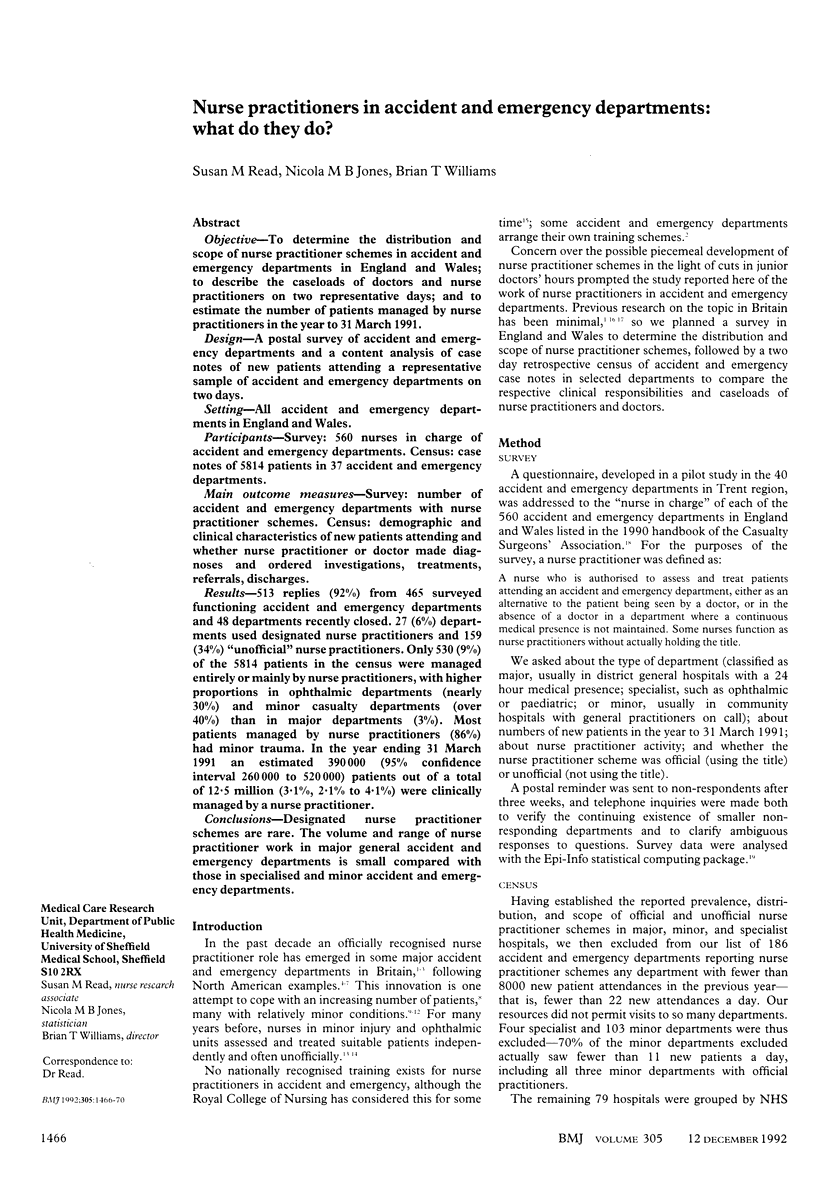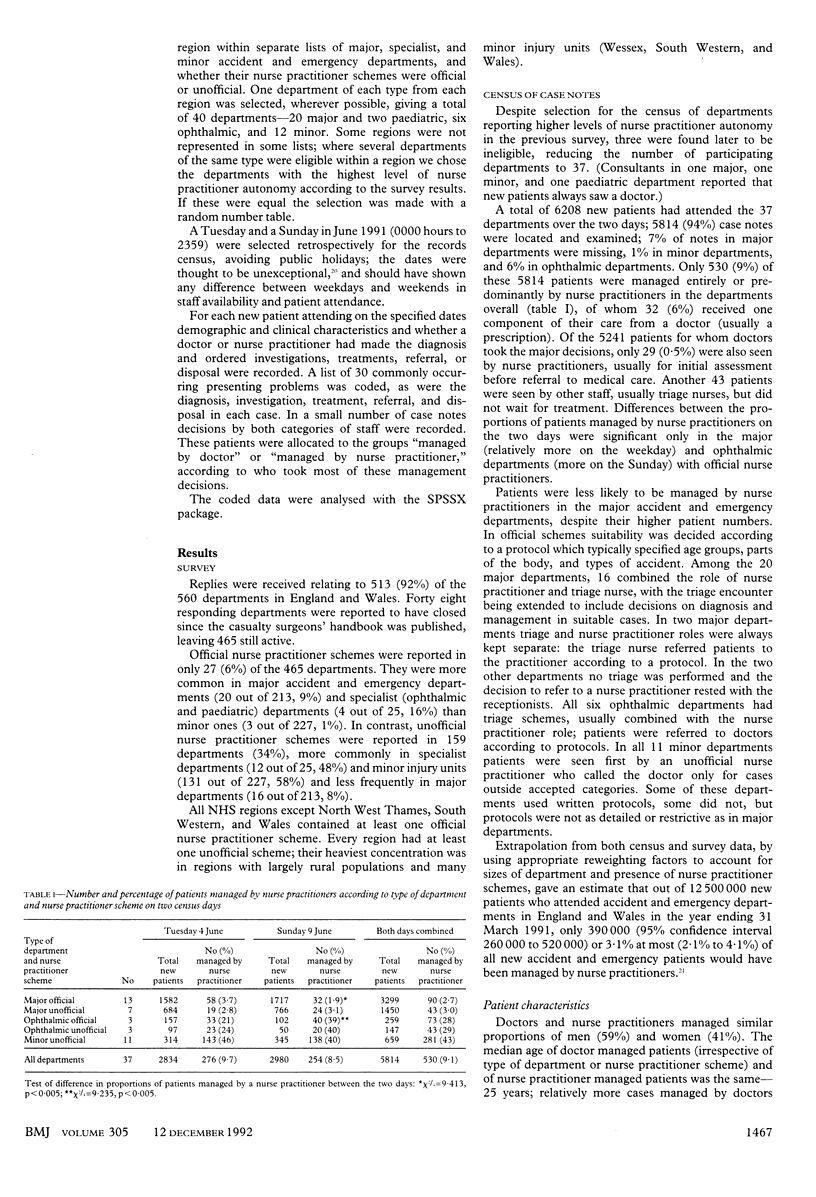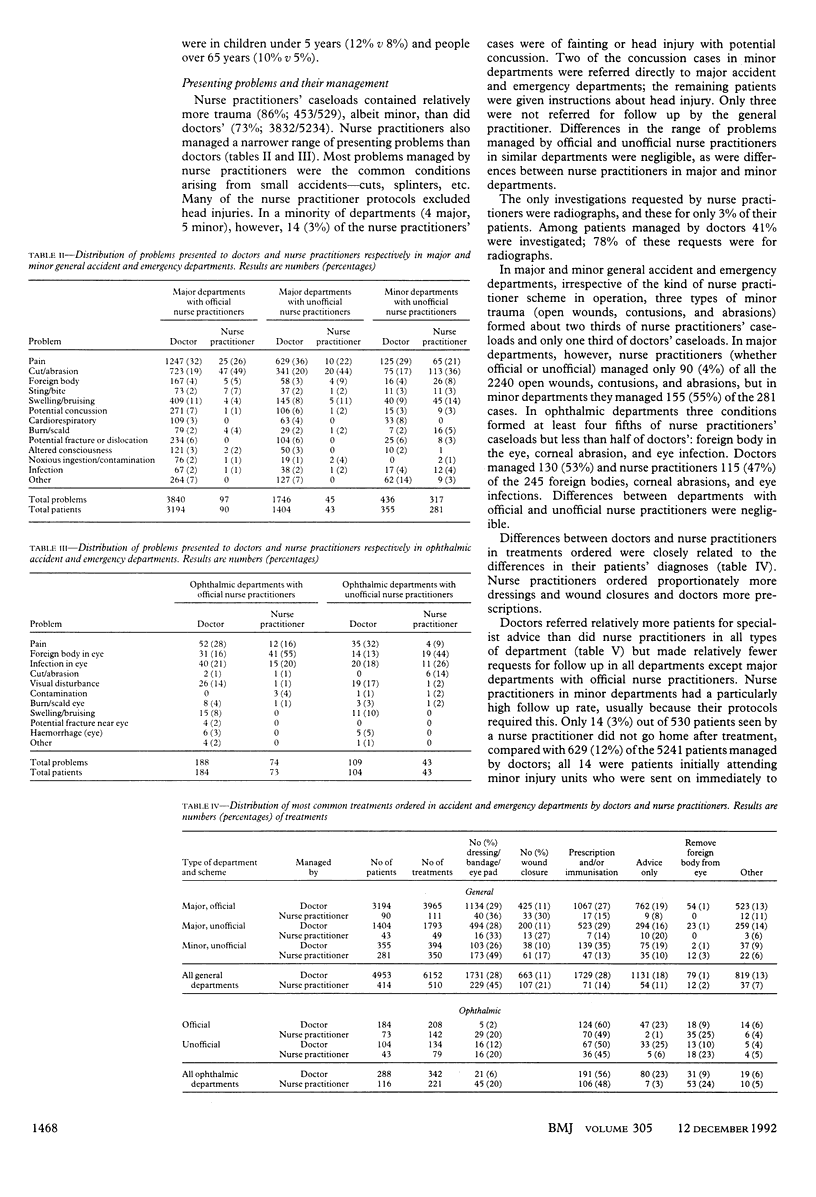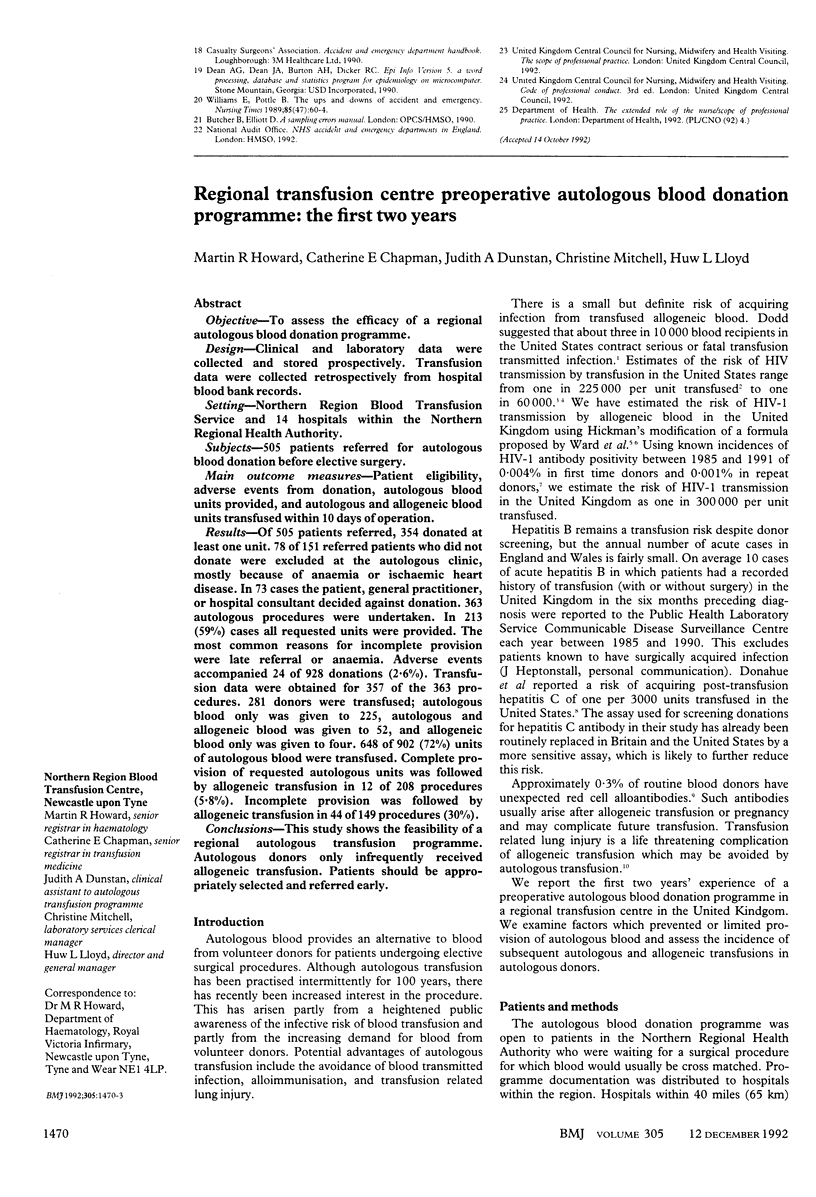Abstract
OBJECTIVE--To determine the distribution and scope of nurse practitioner schemes in accident and emergency departments in England and Wales; to describe the caseloads of doctors and nurse practitioners on two representative days; and to estimate the number of patients managed by nurse practitioners in the year to 31 March 1991. DESIGN--A postal survey of accident and emergency departments and a content analysis of case notes of new patients attending a representative sample of accident and emergency departments on two days. SETTING--All accident and emergency departments in England and Wales. PARTICIPANTS--Survey: 560 nurses in charge of accident and emergency departments. Census: case notes of 5814 patients in 37 accident and emergency departments. MAIN OUTCOME MEASURES--Survey: number of accident and emergency departments with nurse practitioner schemes. Census: demographic and clinical characteristics of new patients attending and whether nurse practitioner or doctor made diagnoses and ordered investigations, treatments, referrals, discharges. RESULTS--513 replies (92%) from 465 surveyed functioning accident and emergency departments and 48 departments recently closed. 27 (6%) departments used designated nurse practitioners and 159 (34%) "unofficial" nurse practitioners. Only 530 (9%) of the 5814 patients in the census were managed entirely or mainly by nurse practitioners, with higher proportions in ophthalmic departments (nearly 30%) and minor casualty departments (over 40%) than in major departments (3%). Most patients managed by nurse practitioners (86%) had minor trauma. In the year ending 31 March 1991 an estimated 390,000 (95% confidence interval 260,000 to 520,000) patients out of a total of 12.5 million (3.1%, 2.1% to 4.1%) were clinically managed by a nurse practitioner. CONCLUSIONS--Designated nurse practitioner schemes are rare. The volume and range of nurse practitioner work in major general accident and emergency departments is small compared with those in specialised and minor accident and emergency departments.
Full text
PDF




Selected References
These references are in PubMed. This may not be the complete list of references from this article.
- Davison A. G., Hildrey A. C., Floyer M. A. Use and misuse of an accident and emergency department in the East End of London. J R Soc Med. 1983 Jan;76(1):37–40. [PMC free article] [PubMed] [Google Scholar]
- Hayden M. L., Davies L. R., Clore E. R. Facilitators and inhibitors of the emergency nurse practitioner role. Nurs Res. 1982 Sep-Oct;31(5):294–299. [PubMed] [Google Scholar]
- James M. R., Pyrgos N. Nurse practitioners in the accident and emergency department. Arch Emerg Med. 1989 Dec;6(4):241–246. doi: 10.1136/emj.6.4.241. [DOI] [PMC free article] [PubMed] [Google Scholar]
- Jones N. P., Hayward J. M., Khaw P. T., Claoué C. M., Elkington A. R. Function of an ophthalmic "accident and emergency" department: results of a six month survey. Br Med J (Clin Res Ed) 1986 Jan 18;292(6514):188–190. doi: 10.1136/bmj.292.6514.188. [DOI] [PMC free article] [PubMed] [Google Scholar]
- Milner P. C., Nicholl J. P., Williams B. T. Variation in demand for accident and emergency departments in England from 1974 to 1985. J Epidemiol Community Health. 1988 Sep;42(3):274–278. doi: 10.1136/jech.42.3.274. [DOI] [PMC free article] [PubMed] [Google Scholar]
- Morris F., Head S., Holkar V. The nurse practitioner: help in clarifying clinical and educational activities in accident and emergency departments. Health Trends. 1989 Dec;21(4):124–126. [PubMed] [Google Scholar]
- Potter T. A real way forward in A&E. Developing the nurse-practitioner role. Prof Nurse. 1990 Aug;5(11):586–588. [PubMed] [Google Scholar]
- Williams E., Pottle B. The ups and downs of A&E. Nurs Times. 1989 Nov 22;85(47):60–64. [PubMed] [Google Scholar]


